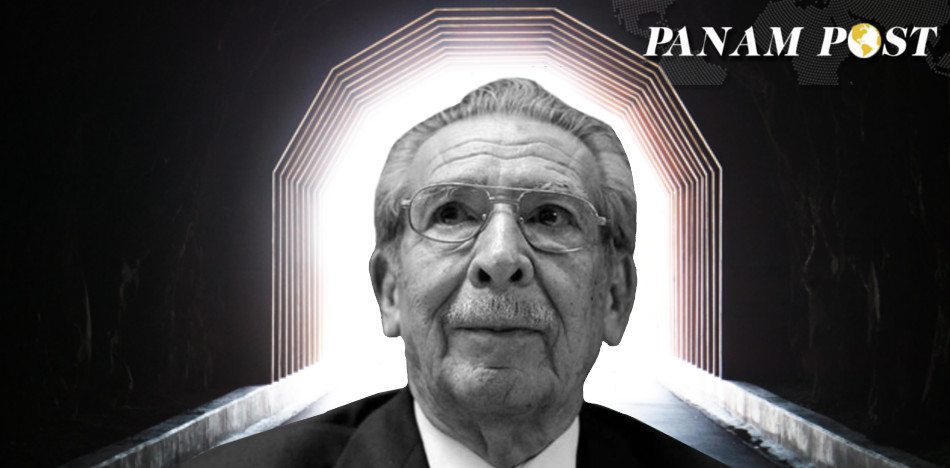
On Sunday, April 1, the former president of Guatemala, Efraín Ríos Montt (1982-1983), died of a heart attack at 91 years of age and left the Guatemalan people with completely conflicting views regarding his historical legacy in the country.
Some insist on pointing to Montt as a dictator who committed genocide against more than 1,700 indigenous people of the Ixil ethnic group, from the north of the country. However, the ex-general was never sentenced. Although in 2013 he was found guilty and set to spend 80 years in prison, the Constitutional Court suspended the verdict only ten days later because of inconsistencies in the sentencing process.
“I never authorized it. I never signed anything. I never proposed it. I never ordered that a race, ethnicity, or religion be threatened. I never did it and despite all that they have said there has not been evidence of my participation,” declared the former president during the first trial.
Those who accuse the political leader of genocide and the death of the Ixils often do so without understanding that genocide is the deliberate extermination of a group for ethnic or racial religious reasons and in the war, the Ixils were not the only victims, but also the Ladinos, quichés, and foreigners, among many others.

The president of the Foundation Against Terrorism (FCT) of Guatemala, Ricardo Méndez Ruiz, explained to the PanAm Post, that “a crime as serious as genocide is extremely difficult to hide, and when it supposedly happened in Guatemala, there was a large number of international journalists, such as Pamela Yates and Allan Nairn, for example, who were present in the Ixil area, without ever mentioning the word genocide even once, nor did members of the guerrilla in their widespread literature before the signing of peace in 1996.”
Ruiz also pointed out that it was not until after the peace agreement was signed in 1996 that the former president was singled out as a supposed perpetrator of genocide, and stressed that they did so “as a means of subversion through the peace process, to continue the war through the courts of justice, with the obvious purpose of, not seeking justice, but to carry out a lucrative business based on large donations from other countries and international organizations.”

The renowned Guatemalan political scientist, Gloria Álvarez, has also assured in the past that there was no genocide and recalls that this indigenous group was a part of the army during the war.
“Those of us who appreciated and respected General Efraín Ríos Montt so much, feel that they brought him to trial for a genocide that never happened, since the death of the general means a serious financial loss to them,” said the president of the FCT.
Montt a great political leader who left a legacy of freedom
Despite the accusations of genocide, there are many who laud the former president for helping to prevent Guatemala from falling into the hands of Marxism.
“The legacy of General Ríos Montt is very broad, and goes from his performance as general commander of the Army, an institution he knew how to lead in such a way that in just 16 months he wiped out the terrorism that was ravaging a large part of the territory of Guatemala as part of the Cold War; until his performance as a visionary statesman, who created institutions such as the Supreme Electoral Tribunal and others, which today are fundamental pillars of our democracy,” recalled Ricardo Méndez Ruiz.
Montt “was a man of integrity, who always led by example as an exemplary soldier and a hard-working public servant. To him we owe the lion’s share of the credit, for the fact that Guatemala did not fall into the clutches of Communism,” he said.
 Versión Español
Versión Español













